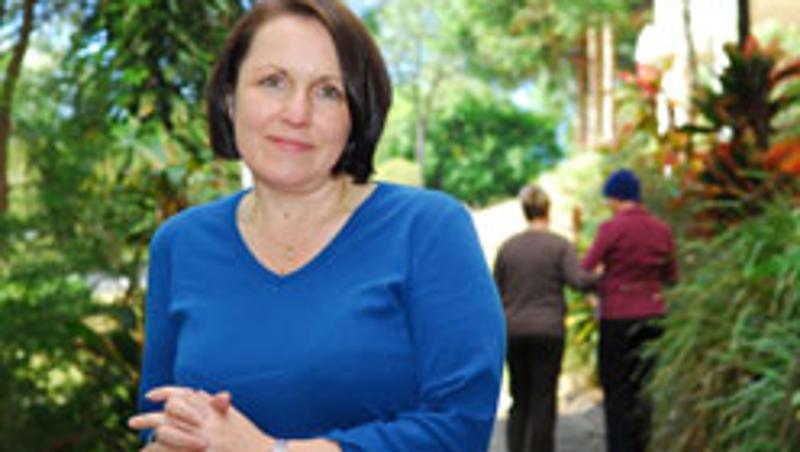
While dying is not an easy topic for discussion, people shouldn't underestimate the importance of broaching the subject long ahead of time, according to Professor Patsy Yates from QUT's School of Nursing and Midwifery. As Vice President of Palliative Care Australia (PCA), Professor Yates is acting as a spokesperson for National Palliative Care Week from May 22 to 28.
PCA commissioned an independent online survey of 1,000 Australians to gauge community views on dying and palliative care to mark National Palliative Care Week. The survey showed that almost two in three Australians believe death and dying isn't discussed enough in the community.
"There's no escaping that we will all die eventually, and everyone deserves quality care at that time. To make that a reality, we need to chat about dying to our loved ones and caregivers. Unfortunately this survey shows this is just not happening," Professor Yates said.
PCA has used to the research to shape a new campaign, 'Let's Chat About Dying', to encourage people to talk about this difficult topic. A new range of information resources is now available on PCA's website, www.palliativecare.org.au
"The good news is there are a wide range of specialist carers and services ready to help ensure that Australians have a quality end of life wherever possible. What people need to do is chat about dying, understand what help is available and let their loved ones know what they'd prefer," Professor Yates said.
"Unfortunately we have our work cut out for us here. When asked about the end of their lives, just 32% of respondents said they had discussed their preferences with their loved ones. Not surprisingly, the people most likely to have discussed their preferences were those aged 65+ (51%) and those with adult children (41%).
"We'd suggest that this is nowhere near enough. When a loved one is dying, it's often a very difficult, emotional period. Understanding clearly what your loved one wants at this time - for instance whether they would like to die at home, or what pain relief they can access - makes decision making much simpler during a very stressful period.
"Our survey also asked people where they would prefer to die. Forty-four per cent just haven't thought about it. Of those who had considered it, some 74% said they wanted to die at home. This is consistent with overseas findings but contrasts sharply with the reality.
"We know that the number of people who die at home in Australia has actually decreased over the past 50 years. Now only about 16% of people die at home, 20% die in hospices and 10% in nursing homes. The rest die in hospitals."
Professor Yates said that while many people carefully prepare financially for dying through wills and estate planning, and even plan and pay for their funerals, few take the time to plan for the process of dying and the type of care they wish for.
"We'd urge people to prepare a simple Advance Care Plan, covering likely scenarios near the end of life and communicating their wishes about the type of care they wish for and where they'd like to be at the end of life," Professor Yates said.
"So our message is clear - don't put it off. Chat to your loved ones about dying, understand what support is out there, and ensure your wishes are clear.
"No one lives forever and we are all entitled to support and comfort during our final days."
Media contact: Michaela Ryan, QUT media officer, 07 3138 4494 or michaela.ryan@qut.edu.au


